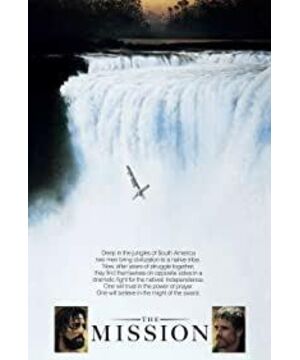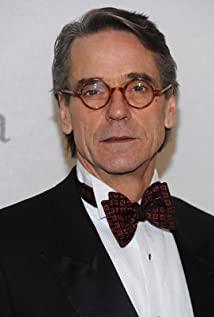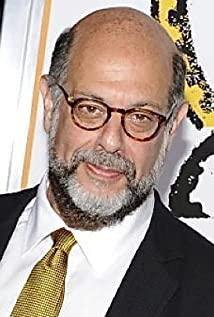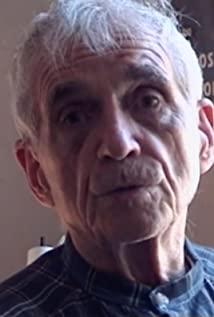This movie ended with an extremely sad ending, but he was definitely not talking about the weakness of love and belief in the face of power. On the contrary, the weak in your eyes finally triumphed in the enemy's guns. Just as the cardinal's last letter to the pope, "I am dead, and they will live forever." The film here has made it clear to readers that the final trial of this battle was a defeat for the colonists. Some people will say that this is a kind of Ah Q spirit, whitewashing the defeat that they have seen with their own eyes, and arranging the myth of turning defeat into victory in the other side of the world. But dare to ask, it is people who are superstitious and violent who must give the glory of victory to the strong on the killing field. For those who do not believe in Christ, justice will not be denied, and the colonists must be nailed to the shame of history. For Christians, Jesus, Joan of Arc, and Father Gabriel in the film all died at the hands of those who claim to be God’s representatives in the world and the power behind them. Could it be that from the suffering of the Son of Man, you can only see the fragility of faith? After a hundred years of persecution, Christianity became the state religion of Rome; the abolition of the slave trade in the New World, what the European Enlightenment did not do, the Gospel Movement in Britain and the United States did. When you accused the Jesuits for not instigating armed resistance and actually being accomplices to the colonists, have you ever thought that the egg knocked down the high wall? Could it be that women and children fought together in blood? Faith allows you to overcome the fear of death, so that beauty will not become a hostage to death. The Chinese emphasize giving up one's life for righteousness, but why Meng Ke wants to give up one's life for righteousness? After all, it is a belief in morality and justice. At the end of the carnage, it is not difficult to see the confidence of the Guaraní people, and it is not difficult to see Father Gabriel’s fearlessness of death. When you see with your eyes and listen with your ears, if you are still asking: Where is God? How blinded are your eyes to teach you that you can't see the revelation! Wherever you suffer, wherever God is with you. The other protagonist in the movie is Rodosa, a former slave trader. In the movie, he is compared with Gabriel, but also with his "old colleagues" colonists. Rodosa killed his younger brother in a duel. This killing was legal at the time, but Rodosa still reflected on his sin in the pain of killing his brother, and then asked the Guaraní for salvation. Sin is not terrible. Human beings have the freedom to sin, and only because they have freedom can sin, but they often don't have the courage to redeem their sins. He also did the dirty work of colonialism. Since Rodosa dragged his weapons and equipment to climb the waterfall to Guarani, the atonement trip to Guarani was a triumph, the conqueror's sinful conquest of climbing up the waterfall with a cannon is destined to be defeated; Rodosa The final parting with Gabriel was also very interesting. Rodosa decided to fight with physical form, but Gabriel insisted on fighting with spirit and love. Rodosa before the war Asking for prayer, Gabriel refused, saying: "If you are right, God will bless you." This attitude is not the first of Gabriel. The Patriarch of the Castle also rejected the emperor's request to pray for the imperial martyrs. However, the film still reflects the contradictory and ambiguous attitude of Christianity towards the defense of truth by force, and force is still necessary. For the audience, we should not only gain confidence, but also reflect. This reflection is not only a reflection on colonial rule, but also how close you are to the Pharisees. Otherwise, you may immediately fall into the post-colonial arrogance and start off with the question of "why is it all from the white perspective?" Massacre is the crime of all mankind. Chinese people should not think that they have not committed colonial evil (not necessarily) and want to relax on the moral high point and just criticize it. Some people may say, why do you drag all mankind into the water with the sins of Europeans? We are also victims. Why should we reflect with the perpetrators? Put yourself in it and think about it, if you are a colonist, would you hardly raise the butcher knife to the Guarani. Human nature is so weak, and this is the sin of all mankind. Jesus said: "Whoever among you is innocent can stone her first." If you do not regard the heinous crimes committed by the Japanese in the War of Resistance as the sins of all mankind and the shame of all mankind, you say It's just that the Japanese are extremely vicious, so when the Chinese raise their swords to the Chinese? In the past hundred years, the crimes of landlords and capitalists, bureaucrats, farmers, workers, red guards, and intellectuals have accused each other of guilt, and their identities have changed back and forth between victims and perpetrators. They felt that this was not a human sin, and they asked, "Why are there always a handful of bad people?" The anti-Semitist Christians in the Middle Ages regarded the death of the Son of Man as the sin of the Jews rather than the sin of the world. How different are you? hope? When you see the church, which claims to be the representative of God, condone the Catholic brothers to shoot and kill Gabir who is doing Mass, what is the difference between the church and the Pharisees, and the difference between the Iberians and Pilate. In addition to faith, always self-reflection, do not become the Pharisee, it should be remembered. The crime of guards, the crime of intellectuals, they accuse each other of guilt, and their identities change back and forth between the victim and the perpetrator. They felt that this was not a human sin, and they asked, "Why are there always a handful of bad people?" The anti-Semitist Christians in the Middle Ages regarded the death of the Son of Man as the sin of the Jews rather than the sin of the world. hope? When you see the church, which claims to be the representative of God, condone the Catholic brothers to shoot and kill Gabir who is doing Mass, what is the difference between the church and the Pharisees, and the difference between the Iberians and Pilate. In addition to faith, always self-reflection, do not become the Pharisee, it should be remembered.
View more about The Mission reviews











